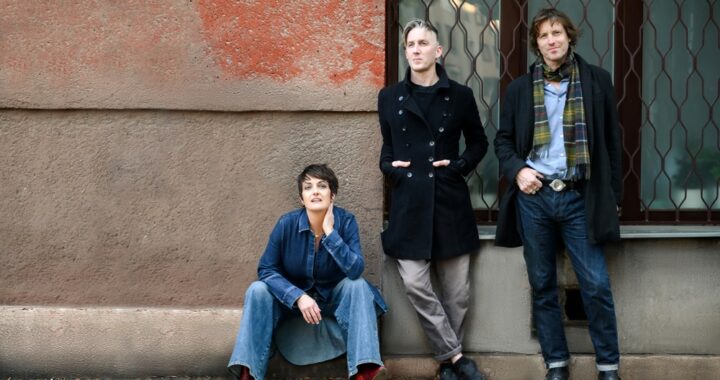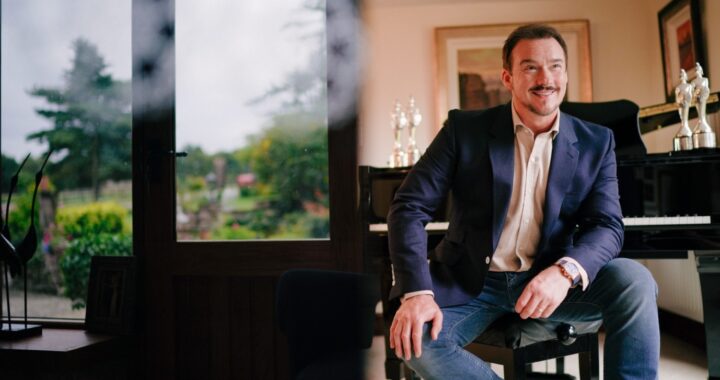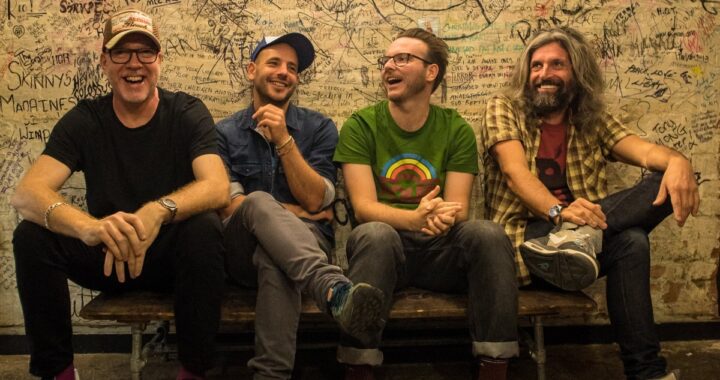Interview: Joan Osborne
6 min read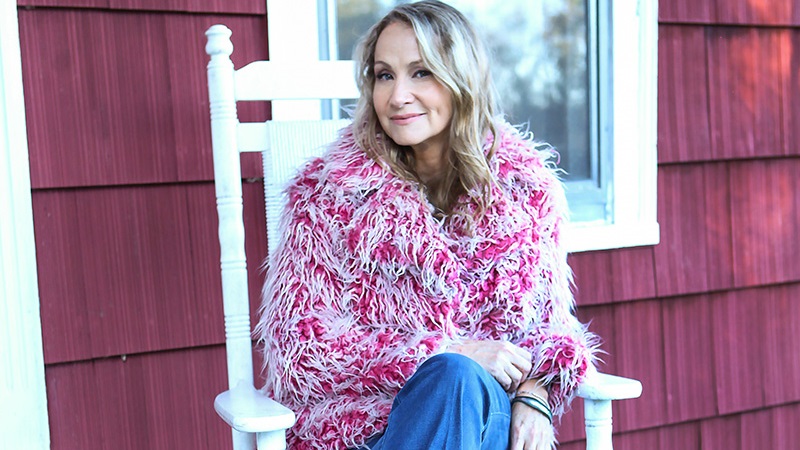
Many artists upon experiencing overnight success will seek to replicate the formula that resulted in the recognition they received, constantly repeating themselves in the process. Following her breakthrough in 1995 with her début album Relish, and its lead single One of Us, Joan Osborne very well may have fallen prey to this trap herself. Instead, Osborne went on to perform in an ever increasing number of musical styles, stretching herself creatively and earning a reputation as a versatile singer and interpreter of songs.
With her ninth studio album, Osborne turns her creative eye and talent toward the works of Bob Dylan, reimagining some of his most famous songs, as well as some of his lesser known works. Ahead of the release of Songs of Bob Dylan, Osborne took some time to discuss her creative journey and the process that led to the album.
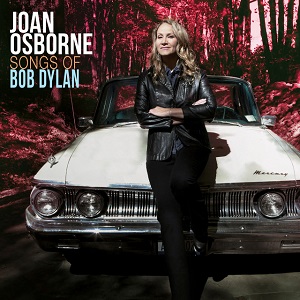 Haydon Benfield: Hi Joan, congratulations on your new album, Songs of Bob Dylan, and thanks for taking the time to answer our questions. In 1995 your ‘breakthrough’ moment came with the hit single, One of Us. Back then, would you ever have imagined that you’d still be releasing records and performing two decades later?
Haydon Benfield: Hi Joan, congratulations on your new album, Songs of Bob Dylan, and thanks for taking the time to answer our questions. In 1995 your ‘breakthrough’ moment came with the hit single, One of Us. Back then, would you ever have imagined that you’d still be releasing records and performing two decades later?
Joan Osborne: I certainly didn’t count on it, but I imagined it, yes. The artists I admired were mostly blues and soul singers, people like B.B. King whose careers only seemed to get better with age. I’d been making my living performing in small clubs in NYC and the northeast US for a few years before Relish became a hit album, and I felt like I’d discovered my calling, I felt like a “lifer”.
HB: That time has seen you tackle a broadening range of genres and styles, does it all feel like a long journey or more of a small step for you creatively?
JO: These moves have been guided by instinct more than any commercial or artistic grand plan. I genuinely love many different kinds of music, and I suppose I’m restless in a way.
HB: Throughout your career, you have built a reputation not just as a capable singer and songwriter in your own right, but also as a talented re-interpreter of others’ works. Which do you find to be more difficult; starting with a blank-sheet and writing an original song, or taking something that already exists and has an established identity and turning it into something new?
JO: Oh writing something new is harder, absolutely. For me that’s the toughest part of what I do, and I continually have to trick myself into getting out of my own way, not judging a song harshly and discarding it while it’s still forming. I get inspiration from fiction writers like Anne Lamott who talk directly about the process of developing an idea from its crappy beginnings to ending up with something useful. You want all of your ideas to be great but most of them are awful, and your ego can take a beating!
[youtube id=”nPFnHdJ0dl0″ width=”620″ height=”360″]
HB: Which do you find most rewarding?
JO: Well writing a new song is very rewarding, if you can actually get something you like. Then you’ve created something that didn’t exist in the world before which is pretty satisfying. But I really do love singing, and it’s very freeing to just sing a great song that somebody else wrote. For me, it’s less about ego and more about just being the music until the music ends, allowing the song to live through you and elevate you.
HB: Bob Dylan is almost mythic in his standing within the music scene and his fans tend to be, shall we say, passionate. In taking on Dylan’s songbook, did you feel at all intimidated by his stature and reputation as a singer/songwriter, or by his fan’s expectations?
JO: Not in the beginning, because so many people have covered Dylan’s songs all through his career. And I think most writers are happy when someone else likes a song they wrote enough to record it. It’s a great compliment. But in the days leading up to the Carlyle shows I did get nervous: we’d taken some liberties with the arrangements and I didn’t know if people would respond well to that or feel like we’d desecrated these great songs. And the Carlyle is a very intimate room, so if people don’t like what you’re doing you will know immediately! Thankfully it turned out fine.
HB: Was there any sense of obligation regarding what you could or couldn’t do with the songs?
JO: Yes, sure. As much as we wanted to play with arrangements so people could hear something new in the songs, we also didn’t want to change them just for the sake of doing something different. The arrangements had to respect the song, enhance the meaning of the lyric or at least not diminish it.
HB: What was your guiding principle in selecting the songs to cover?
JO: There were a few. First, I wanted to draw songs from throughout Dylan’s career, as he’s continued to write brilliant material into the 2000’s. I also wanted to have some songs that everyone would know, like Tangled Up In Blue, mixed with less famous songs like Dark Eyes or Spanish Harlem Incident, again allowing people to perhaps discover something new (and in fact, I didn’t know Dark Eyes until Patti Smith suggested it to me). Finding a way to reinterpret the songs was another criteria: if we were just going to record the song like someone else has already done it then what’s the point?

HB: What was the process like for deciding how to treat each song, for deciding how the music would be coloured and styled?
JO: Trial and error. Keith Cotton, Jack Petruzzelli and I spent days and days working out different ideas, experimenting and refining, in preparation for the Carlyle shows. We were like scientists in a lab, it was fun.
HB: This album grew out of short residencies you did at New York’s Café Carlyle performing Dylan songs. How have the songs morphed between these initial live performances and the studio versions of the album?
JO: The process of playing the songs night after night allowed us to keep experimenting, especially Keith and Jack. Once you’ve got the first few nights under your belt, and your brain and hands aren’t focused on simply remembering the songs and what you’d planned in rehearsal, you slip into a sort of group mind where you’re communicating instinctively and telepathically, and some great ideas can emerge. If they feel good you remember them for the next night and they become part of the arrangement that you take into the studio.
HB: Can audiences expect to be surprised by the shape of the songs on the upcoming tour?
JO: I hope so! We’ve had some great reactions so far in previewing the album for live audiences. Some songs are greeted with a rush of recognition right away, others people don’t “get” until the lyrics start or the chorus comes.
HB: Your career has seen you tour widely and, as you get ready to tour the new album, is there a particular city or venue where you are especially looking forward to performing the songs?
JO: There are loads of great cities I’m excited to go back to: Chicago, Minneapolis, Nashville, Pittsburgh, all the great west coast towns, too many to list. We’re playing in the Rocky Mountains next week in Utah and Colorado, gorgeous places. I hope to get back to Europe and Australia and Japan next year as well, Tokyo and London and Berlin are favourites. Want to play the Paradiso in Amsterdam again and bring my mom, she’s never been.
HB: Do you have a special place that just seems to ‘click’ with you as a performer?
JO: I love playing old churches, there’s something incredible about the acoustics and the energy, maybe all the accumulated prayers are still in the room?
HB: If Songs of Bob Dylan happens to contain your All Along the Watchtower moment – a version of a song that forever changes and defines the way that song is heard – which track would you like that to be?
JO: Well that’s for someone else to decide, but I do love our version of Highway 61 Revisited. The way we changed the time signature gives it a really propulsive energy, different from Dylan’s talking blues style, and the genius lyrics come rushing out in a torrent: it’s pretty exciting!
HB: Thanks for your time Joan.
Joan Osborne’s brand new album Songs of Bob Dylan will be available September 1st.

